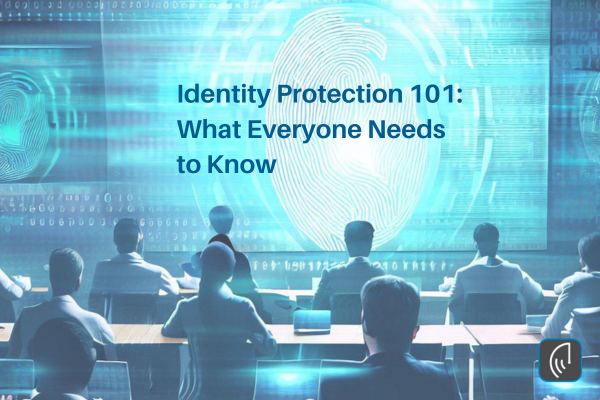
by Brian Thompson | Jun 7, 2023 | Breach, Identity Theft
It’s more important than ever to protect your personal information from cybercriminals. With the rise of online shopping, social media, and cloud storage, our data is constantly shared and stored online. From credit card numbers to social security numbers, our identities are at risk of being stolen and used for fraud. That’s why it’s essential to have a solid understanding of identity protection. In this article, we’ll cover the basics of identity protection, including what it is, why it’s important, and some simple steps you can take to keep your information secure. Whether you’re a tech-savvy individual or someone new to the world of online security, this article is for you. So, grab a cup of coffee, and let’s dive into Identity Protection 101: What Everyone Needs to Know to Keep Their Information Secure!
Types of Identity Theft
There are several types of identity theft that you should be aware of. Understanding these types can help you identify if your information has been compromised and take steps to protect yourself.
The first type of identity theft is financial identity theft. This occurs when a cybercriminal uses your personal information to open new lines of credit or make purchases. They may also use your information to drain your bank account or take out loans in your name.
The second type of identity theft is medical identity theft. This occurs when a cybercriminal uses your personal information to receive medical treatment or prescription drugs. This can hurt your medical records and can even result in incorrect medical treatment.
The third type of identity theft is criminal identity theft. This occurs when a cybercriminal uses your personal information to commit a crime. This can lead to your name being associated with criminal activity, which can have serious consequences.
Signs of Identity Theft
There are several signs that your identity may have been stolen. These include:
– Unfamiliar charges on your credit card or bank account
– Calls from debt collectors for debts you don’t owe
– Notices from the IRS or other government agencies for taxes or benefits you didn’t apply for
– Medical bills for services you didn’t receive
– Denial of credit or loans due to a low credit score
If you notice any of these signs, it’s important to take action immediately to protect your identity. (https://consumer.ftc.gov/articles/what-know-about-identity-theft)
Steps to Protect Your Identity
There are several steps you can take to protect your identity and reduce your risk of identity theft.
The first step is to secure your passwords. Use strong, unique passwords for each of your online accounts and change them regularly. Avoid using the same password for multiple accounts, and don’t share your passwords with anyone.
The second step is to monitor your credit report. Check your credit report regularly for any unauthorized activity. You can get a free credit report from each of the three major credit bureaus once per year.
The third step is to be cautious when sharing your personal information online. Only share your personal information with reputable companies and websites. Be wary of phishing scams, which are emails or messages that try to trick you into giving away your personal information.
The fourth step is to use antivirus software and keep your software up to date. This can help protect your computer from malware and other cyber threats.
Identity Theft Prevention Tips
In addition to the steps above, several other identity theft prevention tips can help protect your identity.
First, be cautious when using public Wi-Fi. Avoid accessing sensitive information, such as your bank account, when using public Wi-Fi. Use a virtual private network (VPN) to encrypt your online activity.
Second, be cautious when sharing your personal information on social media. Avoid sharing sensitive information, such as your social security number or home address, on social media.
Third, be cautious when responding to unsolicited emails or phone calls. Cybercriminals often use these tactics to try to trick you into giving away your personal information.
Finally, check your bank and credit card statements regularly for any unauthorized activity. If you notice anything suspicious, report it to your bank or credit card issuer immediately.
Identity Protection Services
There are several identity protection services available to help you protect your identity. These services monitor your accounts for any signs of suspicious activity and can alert you if your information has been compromised.
Some identity protection services also offer credit monitoring, which can help you keep track of your credit score and stay on top of any changes to your credit report.
What to Do if Your Identity is Stolen
If your identity is stolen, it’s important to take action immediately. The first step is to contact your bank and credit card issuers to report the theft and request a freeze on your accounts.
You should also contact the three major credit bureaus to request a fraud alert on your credit report. This can help prevent any new lines of credit from being opened in your name.
Finally, file a report with the Federal Trade Commission (FTC) to report the identity theft. The FTC can provide you with a recovery plan and can help you take steps to restore your identity.
Identity Protection for Businesses
Identity protection isn’t just important for individuals – it’s also important for businesses. Businesses that handle sensitive customer information, such as credit card numbers and social security numbers, are at risk of cyber-attacks and identity theft.
To protect their customers’ information, businesses should implement strong data security measures, such as encryption and firewalls. They should also train their employees on how to identify and prevent cyber threats.
Finally, businesses should consider investing in identity protection services to monitor their accounts for any signs of suspicious activity and protect their employees – Here is a plan to implement.
Conclusion
Identity protection is essential in today’s digital age. By understanding the risks of identity theft and taking steps to protect your personal information, you can reduce your risk of financial loss and other negative consequences. Whether you’re an individual or a business owner, it’s important to take identity protection seriously and make it a priority. Please share this article…Identity Protection 101: What Everyone Needs to Know!
Related Articles:
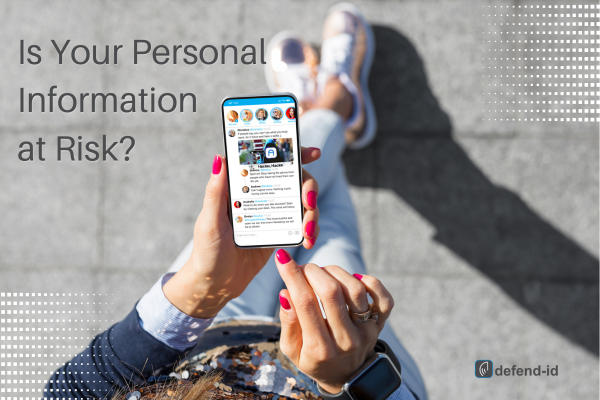
by Brian Thompson | May 31, 2023 | Breach, healthcare, Identity Theft
The Importance of Identity Theft Protection
In today’s digital age, protecting your personal information has become more critical than ever before. With the rise of data breaches and cyber attacks, it’s become increasingly easy for criminals to steal your identity and cause damage to your financial and personal life. Identity theft can happen to anyone, regardless of age, gender, or social status. That’s why it’s crucial to take proactive measures to protect yourself from this growing threat. In this article, we’ll explore the importance of identity theft protection and ways to safeguard your personal information. From monitoring your credit report to using two-factor authentication, we’ll give you practical tips to help you stay safe online and offline. So, if you’re concerned about your personal information being at risk, read on to learn how you can protect yourself from identity theft.
Types of identity theft
Identity theft is a crime that occurs when someone uses your personal information without your consent to commit fraudulent activities, such as opening new credit accounts, taking out loans, or making unauthorized purchases. There are different types of identity theft, including financial identity theft, medical identity theft, and criminal identity theft.
Financial identity theft is the most common type of identity theft, where the thief uses your personal information to access your financial accounts and make fraudulent purchases or withdraw cash. Medical identity theft involves the thief using your medical information to receive medical treatment or purchase prescription drugs. Criminal identity theft occurs when the thief uses your identity to commit a crime, which can lead to you being wrongfully accused of the crime.
Common ways identity theft occurs
Identity theft can occur in different ways, including:
### Phishing scams
Phishing scams involve the thief using fake emails or websites to trick you into providing your personal information, such as your login credentials, social security number, or credit card details. These scams often appear to be legitimate, but they can lead to your personal information being stolen and used for fraudulent activities.
### Data breaches
Data breaches occur when a company’s database is hacked, and the thief gains access to your personal information, such as your name, address, social security number, and credit card details. This information can then be used to commit identity theft.
### Mail theft
Mail theft is a common way for thieves to steal personal information. They can steal your mail to obtain your credit card statements, bank statements, or other sensitive documents, which they can then use to commit identity theft.
The impact of identity theft
Identity theft can have a significant impact on your financial and personal life. It can damage your credit score, make it difficult to obtain credit or loans, and lead to financial losses. It can also affect your reputation and cause emotional distress, especially if you’re wrongfully accused of a crime.
How to protect yourself from identity theft
Protecting yourself from identity theft involves taking proactive measures to safeguard your personal information. Here are some tips to help you protect yourself from identity theft:
### Monitor your credit report
Monitoring your credit report regularly can help you detect any unauthorized activities, such as new credit accounts or loans opened in your name. You can obtain a free credit report once a year from each of the three major credit bureaus – Equifax, Experian, and TransUnion.
### Use two-factor authentication
Using two-factor authentication can help prevent unauthorized access to your online accounts. This involves using a password and a second form of verification, such as a fingerprint or a text message code, to access your accounts.
### Use strong passwords
Using strong passwords can help prevent hackers from accessing your accounts. A strong password should be at least eight characters long and contain a combination of letters, numbers, and special characters.
### Be cautious when sharing personal information
Be cautious when sharing your personal information online or in person. Only provide your personal information to trusted sources, and avoid sharing it on public Wi-Fi networks.
Identity theft protection services
Identity theft protection services can help you monitor and protect your personal information from identity theft. These services can provide you with alerts when there’s suspicious activity on your accounts, monitor your credit report, and offer identity restoration services if you become a victim of identity theft.
Tips for selecting an identity theft protection service
When selecting an identity theft protection service, consider the following factors:
### Features
Look for a service that offers comprehensive monitoring and protection features, such as credit monitoring, identity restoration, and fraud alerts.
### Cost
Consider the cost of the service and whether it fits within your budget. Some services offer free trials or low-cost plans, while others can be more expensive.
### Reputation
Research the reputation of the service provider to ensure they’re trustworthy and have a good track record of protecting their customers’ personal information.
What to do if you become a victim of identity theft
If you become a victim of identity theft, it’s important to act quickly to minimize the damage. Here are some steps you can take:
### Contact your financial institutions
Contact your bank, credit card companies, and other financial institutions to report the fraud and cancel any unauthorized transactions or accounts.
### File a report with the FTC
File a report with the Federal Trade Commission (FTC) to report the identity theft and create a recovery plan.
### Contact the credit bureaus
Contact the three major credit bureaus – Equifax, Experian, and TransUnion – to place a fraud alert on your credit report and freeze your credit.
### Work with an identity theft restoration service
Consider working with an identity theft restoration service to help you restore your identity and clear your name.
Identity theft prevention best practices
Here are some best practices to help prevent identity theft:
### Shred sensitive documents
Shred any sensitive documents that contain personal information before disposing of them.
### Protect your mail
Protect your mail by using a secure mailbox or a post office box.
### Keep your software up to date
Keep your software up to date with the latest security patches to prevent hackers from accessing your computer or mobile device.
### Use a VPN
Use a virtual private network (VPN) to encrypt your internet connection and protect your personal information from hackers.
Conclusion
Protecting your personal information from identity theft is crucial in today’s digital age. By taking proactive measures to safeguard your personal information, such as monitoring your credit report, using two-factor authentication, and using strong passwords, you can minimize the risk of becoming a victim of identity theft. Consider working with an identity theft protection service to provide additional monitoring and protection features. If you become a victim of identity theft, act quickly to minimize the damage and work with an identity theft restoration service to help you restore your identity and clear your name.
Is Your Personal Information at Risk? The Importance of Identity Theft Protection – Related articles:
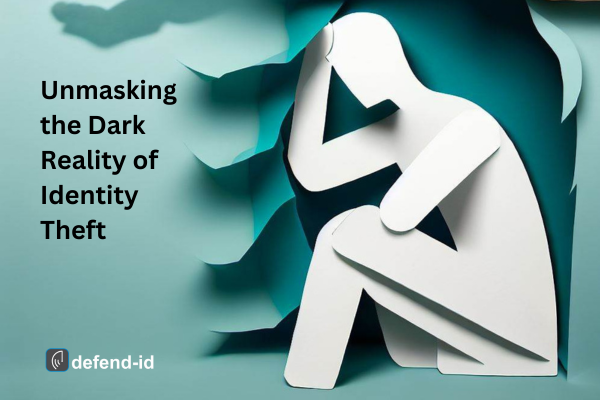
by Brian Thompson | May 25, 2023 | General, healthcare, Identity Theft
In the sinister world of identity theft, I have witnessed firsthand the disastrous repercussions it inflicts on unsuspecting victims. Here we are unmasking the dark reality of identity theft and exposing the alarming truth behind it, revealing its profound impact on individuals, their families, and their professional lives.
The cost
- Personal Ruin and Financial Catastrophe: Identity theft strikes like a stealthy predator, leaving its victims vulnerable to financial ruin. Imagine your hard-earned savings depleted, your credit ruined, and loans taken out in your name without your consent.
- Shattered Trust and Emotional Turmoil: The aftermath of identity theft is an emotional rollercoaster, causing victims to question their own security and trust in others. Anxiety, stress, and sleepless nights become their unwelcome companions.
- Family Bonds Under Siege: Identity theft tears through the fabric of family life, leaving behind a trail of shattered trust and fractured relationships. The burden of restoring stolen identities often strains familial bonds to the breaking point.
- Tainted Reputations and Professional Downfall: Imagine the catastrophic impact on your professional life as your reputation is tarnished by the fraudulent actions of identity thieves. All of wich can lead to job loss, damaged career prospects, and shattered aspirations.
- Legal Nightmares and Lingering Consequences: Victims of identity theft find themselves ensnared in a labyrinth of legal battles, struggling to reclaim their stolen identities. The long-lasting repercussions can haunt them for years, hindering their financial and personal growth.
- Traumatic Implications on Work-Life Balance: The theft of one’s identity wreaks havoc on work-life balance, as victims are consumed by the arduous task of reclaiming their lives, juggling legal battles while striving to maintain job responsibilities.
- Profound Psychological Impact: Identity theft leaves deep psychological scars, eroding victims’ self-esteem and instilling a constant sense of vulnerability. The fear of being victimized again permeates their every thought and action.
Identity theft is a haunting reality that has dire consequences for individuals, their families, and their professional lives. Only through increased awareness and proactive security measures can we combat this insidious menace.
In a world where identity theft looms as an ever-present danger, it is vital to recognize its grave implications. Take the necessary steps to protect ourselves, our loved ones, and spread the word!
Need a plan?
Unmasking the Dark Reality of Identity Theft may is an alarming reality but we have your back. Get your identity theft response plan for employers here: https://defend-id.ac-page.com/employee-identity-theft-response-plan
Learn More: https://www.defend-id.com/
Related article:The Emotional Toll of Identity Theft
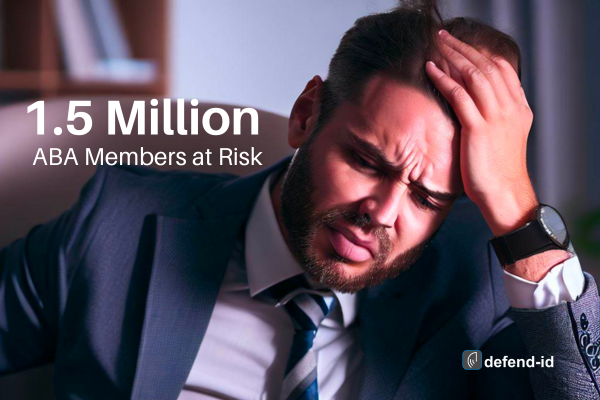
by Brian Thompson | May 18, 2023 | Breach, Identity Theft
The American Bar Association (ABA) is the largest association of lawyers and legal professionals worldwide, with over 160,000 members. However, this prestigious organization recently suffered a significant data breach that exposed the login credentials, putting 1.5 million ABA members at risk who used its old website or career center.
According to the ABA, the breach occurred in March 2023, when an unauthorized third party accessed its network and acquired usernames and hashed and salted passwords. These passwords were encrypted with a random string of characters, but they could still be cracked by hackers over time. Moreover, some of the passwords were default ones assigned by the ABA when the accounts were registered.
This breach poses a serious risk of identity theft for the affected members, especially if they used the same credentials for other online accounts or services. Identity theft occurs when someone uses your personal information, such as your name, Social Security number, or credit card number, to commit fraud or other crimes. According to the Federal Trade Commission (FTC), identity theft affected 4.8 million Americans in 2020, resulting in $3.3 billion in losses.
The consequences of identity theft can be devastating for anyone, especially for lawyers and other legal professionals who handle sensitive and confidential information daily. Identity theft can damage your reputation, ruin your credit score, cause legal problems, impact your ability to earn, and even jeopardize your license to practice law.
If you are one of the 1.5 Million ABA Members at Risk you must take immediate steps to protect yourself. Here are five tips to help you prevent or mitigate identity theft:
- Change your passwords for all your online accounts. Pay special attention to accounts related to your work or finances. Use strong and unique passwords that are not easy to guess or crack. You can use a password manager to generate and store your passwords securely.
- Monitor your credit reports and bank statements regularly for suspicious or unauthorized activity. You can get a free credit report each year from the three major credit bureaus: Equifax, Experian, and TransUnion. You can also freeze your credit reports to prevent new accounts from being opened in your name without your consent.
- Review your ABA member profile and update any outdated or inaccurate information. You can also opt out of sharing your personal information with third parties or receiving marketing communications from the ABA.
- Contact the ABA and report any issues or concerns related to the breach. You can call their toll-free number at 1-800-285-2221 or email them at abaservice@americanbar.org. You can also visit their website at www.americanbar.org for more information and updates on the breach.
- Consider enrolling in an identity theft protection service. Identity protection services alert you of potential threats, monitor your personal information across various sources, and assist you with identity restoration. Some of these services may offer discounts or free trials for ABA members.
The ABA data breach is a serious matter that should not be taken lightly by anyone. By following these tips, you can reduce your risk of becoming a victim of identity theft and safeguard your future as a lawyer or legal professional.
Download: Identity Theft Response Plan for Employers
5 Reasons Employers Offer Identity Protection

by Brian Thompson | May 10, 2023 | healthcare, Identity Theft
Identity theft is a growing problem that affects millions of people every year. It can be a devastating experience that leaves victims feeling stressed, vulnerable, and emotionally drained. In this article, we will explore the lasting impact and emotional toll of identity theft, including the stressors, frequency, and psychological effects of this crime.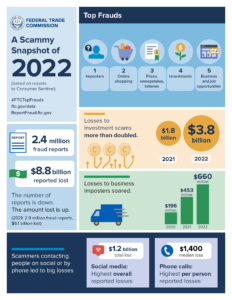
Identity Theft Epidemic
Identity theft is a crime that occurs when someone steals another person’s personal information, such as their Social Security number, credit card number, or bank account information. This stolen information is then used to commit fraud or other illegal activities.
According to the Federal Trade Commission, identity theft is the most common type of consumer fraud in the United States. Investment scams caused the largest financial losses in 2022, totaling over $3.8 billion, which is more than twice the amount lost in the previous year. The second highest category of reported losses came from imposter scams, which resulted in losses of $2.6 billion, up from $2.4 billion in 2021.
Stressors: Financial and Emotional Stress Ranging from Anxiety to Emotional Volatility
Identity theft can have both financial and emotional consequences. Victims often experience a range of stressors, including anxiety, emotional volatility, and financial strain. Financial stress is perhaps the most obvious consequence, as victims may face financial losses due to fraudulent activity on their accounts.
Emotionally, victims may feel violated, angry, or helpless. Identity theft can shake a person’s sense of security and trust, leaving them feeling vulnerable and exposed.
Identity Theft
It is a pervasive problem, affecting millions of people every year. It can happen to anyone, regardless of age, income, or background. Criminals often use a variety of tactics to steal personal information, including phishing scams, data breaches, and skimming devices.
Psychological Effects of Identity Theft
The psychological effects of identity theft can be significant and long-lasting. Victims often experience reactions similar to those of trauma victims, including emotional distress, anxiety, and grief. They may feel violated and powerless, experiencing a loss of confidence in areas where they typically had confidence.
Some of the common psychological effects of identity theft include: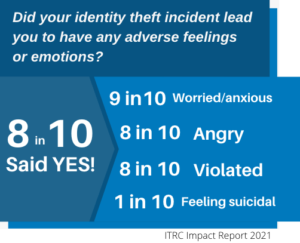
- Feeling Vulnerable: Identity theft can leave victims feeling vulnerable and exposed. They may feel like they have lost control over their personal information, which can be a difficult feeling to shake. This sense of vulnerability can impact a person’s sense of self and their relationships with others.
- Self-Blame: Victims of identity theft may also blame themselves for the crime, even though it is not their fault. They may feel like they should have done more to protect their personal information, or that they somehow caused the theft to occur.
- Feeling Isolated: Identity theft can be a lonely experience, leaving victims feeling isolated and alone. They may feel like no one understands what they are going through, or that they are somehow to blame for the crime.
- Family Problems: Being a victim impact a person’s relationships with their family members. They may feel like they have let their loved ones down, or that they are a burden on their family. This can strain relationships and cause tension in the home.
- Work Problems: It can also impact a person’s job and career. Victims may need to take time off work to deal with the aftermath of the crime, or they may struggle to focus on their work due to the emotional toll of the experience. This can lead to missed opportunities, reduced productivity, and strained relationships with colleagues.
Identity theft can have a lasting impact on victims, both financially and emotionally. The psychological effects of this crime can be significant, causing emotional distress, anxiety, and grief. Victims may feel vulnerable, isolated, and alone.
Related articles:
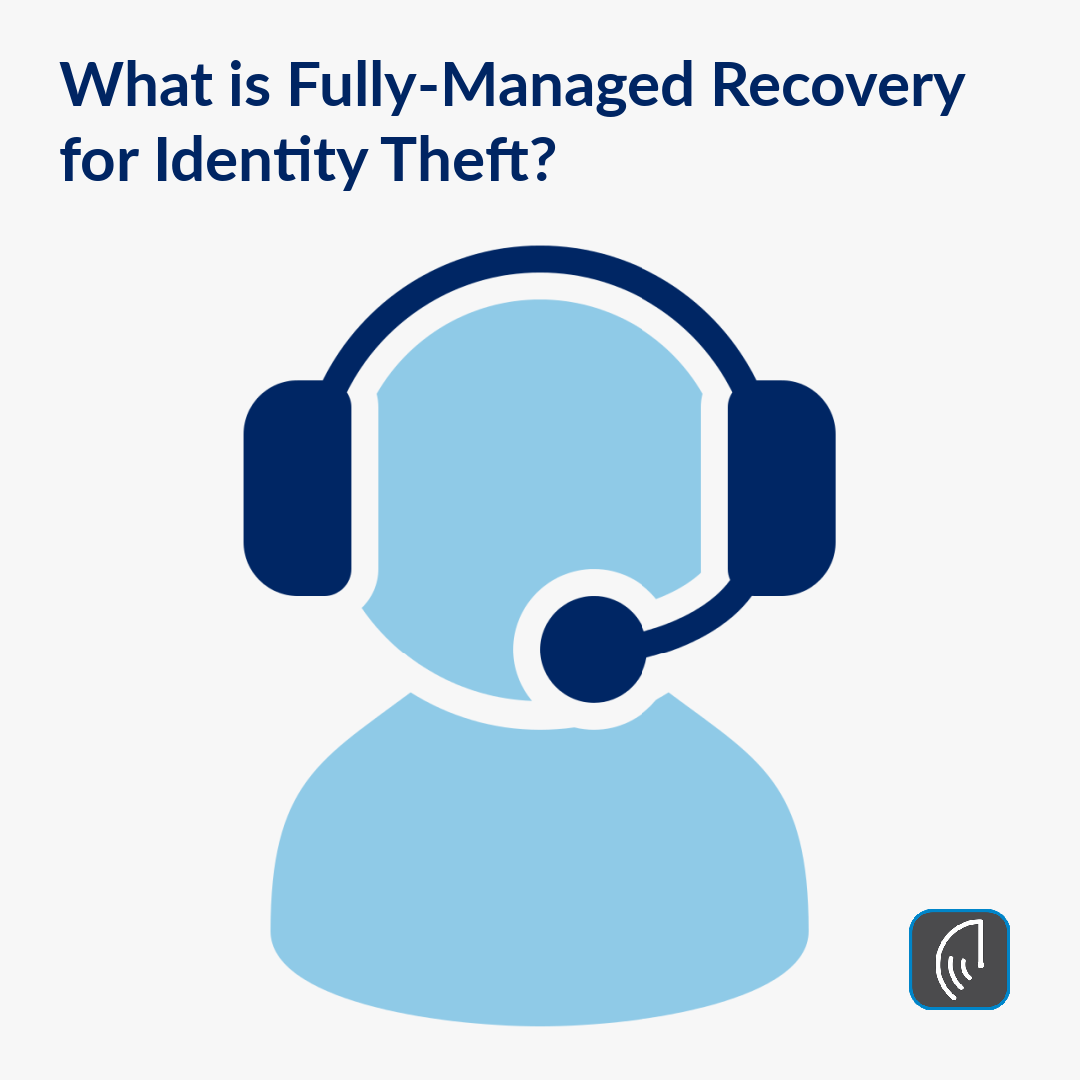
by Brian Thompson | May 2, 2023 | General, Identity Theft
Fully-Managed Recovery for Identity Theft victims is the most important feature a provider can offer. BUT, all “fully managed/full Service” recovery programs are not the same. There is no defined standard of service when using these terms, so it is crucial to understand what an excellent full-service provider does.
Imagine the anxiety of having your identity stolen, or you may know firsthand. The ability to turn to an expert who helps people every day is incredibly comforting. Without that place to turn, many wander looking for solutions to get their identity back. Few are successful, many do what they can but don’t know everything they must do. And to top it off, all of us who have been victims are more susceptible to having our identity stolen again.
So if we are serious about ensuring our recovery, we need to have the best resources to make that happen.
A well-developed, fully managed recovery service lays out a path to recovery.
Here is what a good program looks like
A good program includes Multi-Generation, fully-managed recovery for identity theft victims. You receive 24/7/365 support and access to a Recovery Advocate. You are covered regardless of the type of identity fraud, including but not limited to medical, financial, criminal, and acts of terrorism. Fully managed recovery provides you with peace of mind knowing, you will have access to a dedicated, certified Recovery Advocate. Your advocate will work on your behalf, performing all tasks necessary to restore your identity, through the use of a limited power of attorney. This work includes completing and filing forms, conducting research, contacting all companies, agencies, and financial institutions necessary, to ensure that all fraudulent activity identified is addressed and resolved.
Dedicated Certified Recovery Advocate
-
- A highly qualified individual with the following credentials: FCRA, FACT Act, CITRMS Certified, and Licensed Private Investigators
- A single point of contact for you during the recovery of your identity
- A direct phone number, email, and fax number to your dedicated recovery advocate
- They will submit disputes on your behalf
- Criminal investigation assistance and evidence capture
- Creation of law enforcement grade case file
Customized Recovery Plan
-
- Personalized fraud recovery plan
- Plans Include all fraud types: medical, financial, criminal identity theft, etc.
- 3-Bureau Credit Reports as required by the circumstances of your case
- Additional research with access to billions of public records
- 12 Months of follow up to ensure resolution
Fraud Packet with Limited Power of Attorney
-
- Provides essential information, resources and all the documents necessary to begin recovery
- Allows your dedicated Recovery Advocate to work on your behalf
- Your Recovery Advocate will contact creditors, government offices, collection agencies, and any other entity
Identity Care Account or Resource Center for your specific case.
-
- allows a convenient means to track the progress of your identity theft case securely 24/7/365
- Your Recovery Advocate can securely upload case documents to your account for you to review, print or save electronically
- Online access to view your credit report and score
- Online access to view your credit monitoring alerts
Credit Monitoring & Alerts
-
- For the duration of your case and an additional 12 months following the resolution
- Receive alerts on new issues which may impact your credit file
Credit Report & Score
-
- Provided to you at the outset of your case to benchmark your credit file
Family Plan Benefit
-
- A qualifying family participant shall mean the primary consumer’s spouse or domestic partner, the consumer’s dependents who have the same permanent address as the primary consumer, any IRS-qualified dependents, and parents (mother or father) of the consumer who have the same permanent address as the consumer, or, who are registered in a senior assisted living facility, nursing home, or hospice. Services continue to provide coverage for up to 72 months after death for all covered members
Fully-Managed Recovery for Identity Theft is the crucial feature of any program out there. It is the most important feature in giving you peace of mind and a place to turn.
Learn more about the other features of Identity theft monitoring here: 14 features of Identity Theft Protection Monitoring and the Most Important Feature!
Or Read about how ID Theft Increases Stress and Fatigue here.







